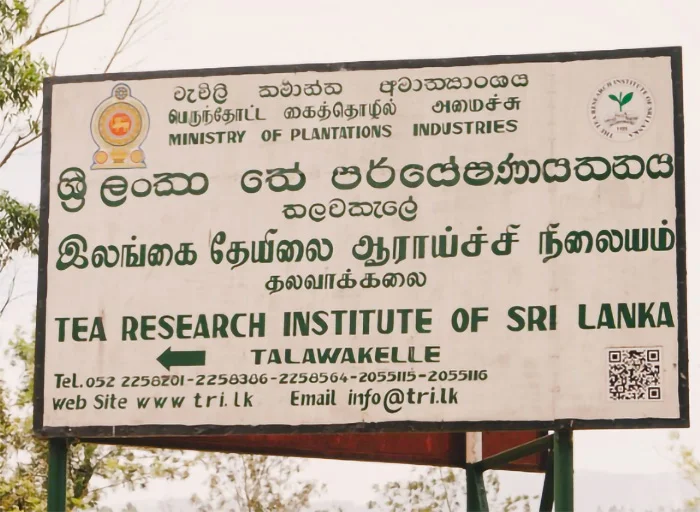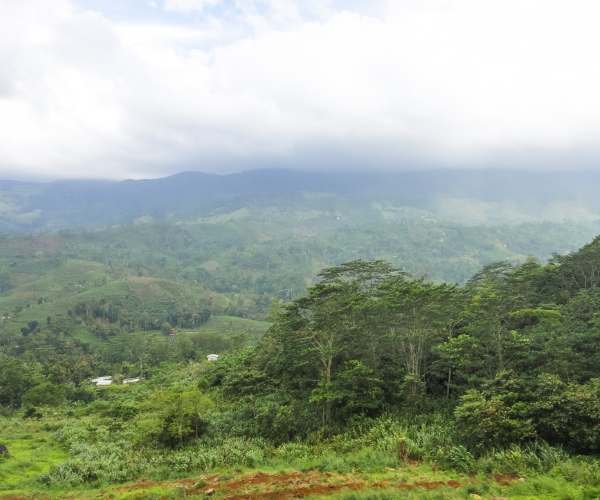Tea Research Institute of Sri Lanka – A Pillar of Innovation in the Global Tea Industry – By Bhanuka – eLanka

Regenerating Soil Fertility for a Sustainable Future
Sri Lanka’s tea industry faces a serious challenge with declining soil fertility, which directly affects productivity and long-term sustainability. This issue is closely linked with the aging tea plant population. As bushes grow old, they become weaker, die off more frequently, and leave empty patches in the fields. These vacant areas are extremely vulnerable to soil erosion, especially during heavy rainfall. When erosion increases, essential nutrients wash away, leaving the soil weaker each year.
Soil organic matter (SOM) plays a vital role in maintaining fertility because it helps the soil retain nutrients and water. However, in the warmer low-country tea regions, SOM breaks down much faster due to high temperatures. Without adding organic material—such as shade-tree loppings or tea bush prunings—the soil becomes nutritionally poor. Unfortunately, most smallholder farmers, who produce nearly three-quarters of Sri Lanka’s tea, do not consistently follow the Good Agricultural Practices recommended by the Tea Research Institute (TRI).
To address this, the Ministry of Plantation Industries, regional plantation companies, smallholder associations, and TRI have jointly introduced a national soil regeneration program. This initiative promotes regenerative agriculture, emphasising organic amendments, conservation practices, and improved field management. Several international organizations also support these efforts, recognising the importance of restoring healthy soils for the long-term survival of Sri Lanka’s tea sector.
Reducing the High Cost of Production
Among global tea-producing nations, Sri Lanka currently bears the highest cost of production (COP). Key inputs such as labour, fertiliser, and agrochemicals contribute significantly to these expenses. Large estates spend around Rs. 1200 per kilogram of made tea, while smallholders spend between Rs. 800 and Rs. 1000. Labour shortages and rising wages further increase costs, making the industry less competitive.
Mechanisation is now essential. New technologies such as drone-assisted fertiliser application are already being used by some estates and growers. These methods help reduce labour dependency and improve efficiency. TRI is conducting collaborative research to establish proper guidelines, protocols, and technical standards for drone applications in tea fields.
Improving efficiency in both field practices and factory operations is another priority. The TRI promotes the use of advanced fertiliser types such as encapsulated slow-release formulations. These fertilisers improve nutrient use efficiency while supporting soil health. In manufacturing, energy consumption is one of the largest expenses. TRI’s Process Technology Division has therefore focused on increasing energy efficiency without compromising tea quality. Automation and optimisation of key stages like withering and drying have produced promising results.
High-density planting systems, which use modern technologies such as fertigation and AI-based monitoring, also show potential for significantly increasing productivity. TRI has partnered with estates testing these systems to evaluate their sustainability and long-term benefits.
Labour efficiency remains another major concern. Sri Lankan tea pluckers typically pick around 20 kg per day, while workers in India and Kenya average 30–35 kg. Introducing structured performance-based incentives, improving training, and adopting supportive technologies could help bridge this gap and reduce the high production cost.
The Need for Consistent and Evidence-Based Government Policies
Sudden changes in agricultural policies have severely disrupted the tea sector over the past decade. The 2015 ban on glyphosate, one of the few effective herbicides for tea, caused widespread weed problems and a significant drop in production. TRI estimates that the industry suffered a 30% loss during this period. Weed control has still not fully recovered.
Just as the industry was recovering, the sudden shift to “100% organic agriculture” in 2021 caused another major setback. Without adequate fertiliser, tea bushes suffered nutrient stress, which led to reduced yields and increased vulnerability to drought, pests, and diseases. Although production began to improve again in 2024, many bushes have not fully regained their strength.
The tea sector relies on long-term planning. Therefore, frequent policy changes without scientific backing can cause lasting damage. The industry needs consistent, research-informed policies that support stability, productivity, and sustainability.
Strengthening Climate Resilience in the Tea Industry
Climate change threatens tea production more than ever. Tea is highly sensitive to temperature changes, moisture levels, and rainfall patterns. Rising temperatures in the low-country increase heat stress and reduce yields. Although the up-country grows tea in cooler climates, these plants may be even more sensitive to rapid temperature increases.
TRI research shows that rainfall patterns across tea-growing zones are changing as well. Both droughts and excessive rainfall can harm productivity. To prepare for these challenges, TRI has incorporated climate-resilient traits—such as drought tolerance and heat resistance—into its breeding programs. Several cultivars in the TRI 5000 Series already demonstrate improved resilience.
In addition to breeding, TRI promotes climate-smart agricultural practices: proper shade maintenance, soil moisture conservation, irrigation, rainwater harvesting, and increased organic matter. These strategies help farmers protect their crops and adapt to new climate realities.
The Future Role of the Tea Research Institute
As the TRI celebrates 100 years of service, the institute must look ahead and prepare for new scientific and technological demands. Modern research requires advanced tools, digital systems, and strong talent. Emerging fields—such as artificial intelligence, biotechnology, nanotechnology, robotics, and mechatronics—offer opportunities to transform tea cultivation and production.
To harness these opportunities, TRI must upgrade its laboratories, research equipment, and digital infrastructure. It must also attract top graduates and experienced scientists. However, the current remuneration structure makes it difficult to retain highly skilled researchers, and many have left for better opportunities abroad or in local universities.
One proposed solution is for TRI to evolve into a dual-function institution—conducting research while also awarding postgraduate degrees. Several global institutions, such as India’s IARI and Germany’s Max Planck Institutes, operate under this model. Such a transformation would help TRI attract talent, produce research-driven innovation, and directly support the needs of the tea industry.
Restoring the original purpose of the tea export “cess” is also essential. For many years, a portion of export earnings funded research and infrastructure at TRI. Redirecting this revenue back to the institute would strengthen its ability to support the industry, upgrade facilities, and retain qualified scientists.
The future of Sri Lanka’s tea sector depends heavily on the strength of its research foundation. With proper support, modern governance, and cutting-edge technology, the Tea Research Institute can continue to guide the industry through its next century—ensuring that Ceylon Tea remains globally competitive and nationally significant.





















